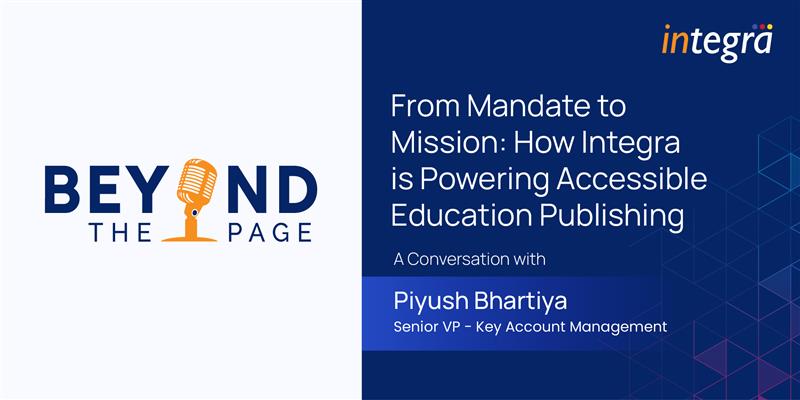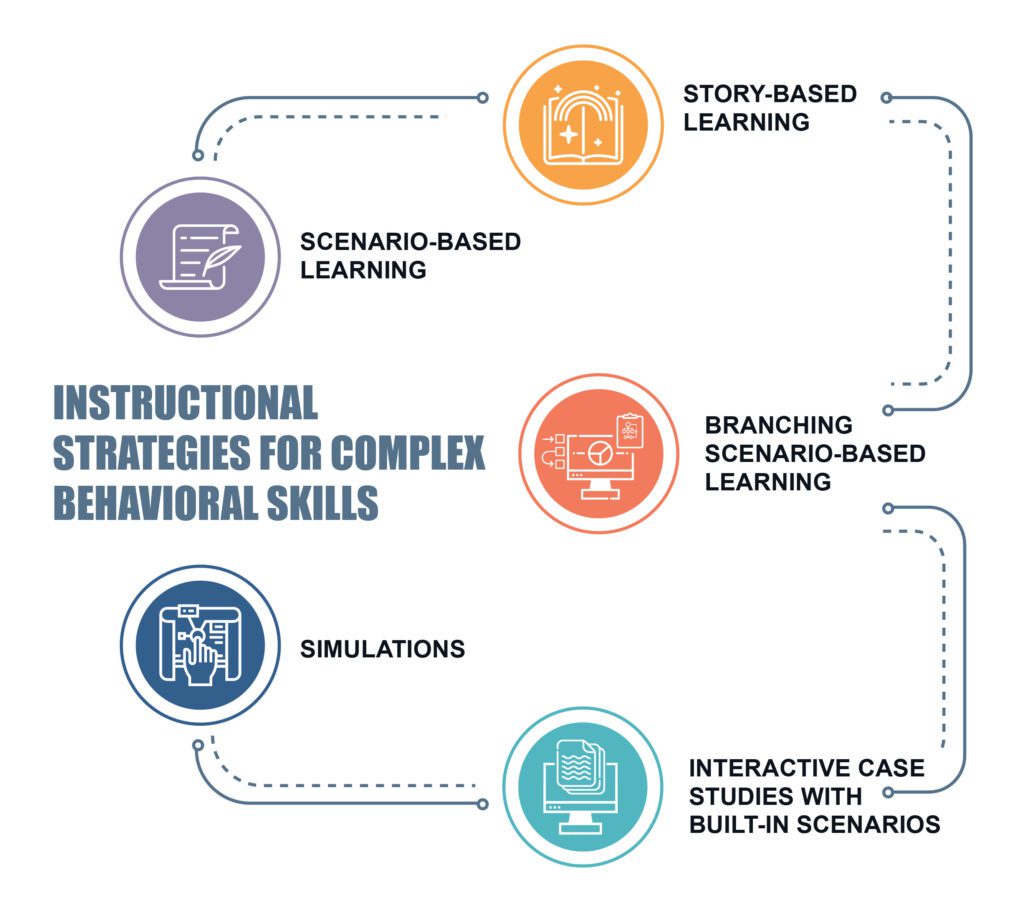Building a Trauma-informed High-Performance Team in the Shadow of a Pandemic

Integra helps Institute for Community Living, New York, transform an instructor-led in-person training into a scalable remote learning program.
How do you create a high-performance team in the shadow of a pandemic? Trauma has impacted everyone, from CEOs to frontline employees. Traumatic events, such as anxiety, fear, powerlessness, helplessness, worry, anger, and restlessness, can affect people across all walks of life at any time. Organizations are looking for ways to build high-performance teams that foster environment of care and empathy while also addressing traumatic impact on their workforce.
Recently, Integra helped the Institute for Community Living, New York, transform an instructor-led in-person training program into a scalable remote learning program. In this article, we will explore what a trauma-informed workplace is and how organizations can build high-performance teams despite pandemic-related uncertainty.
Before you proceed with the rest of the blog post, it would be worthwhile to watch this short snippet from the webinar ‘Training complex behavioral skills like trauma-informed approach in workplaces through online self-learning programs’ to get a quick overview of the subject matter of this article.
What is a trauma-informed approach?
According to Buffalo Center for Social Research, University at Buffalo, “Trauma-Informed Care (TIC) is an approach in the human service field that assumes that an individual is more likely than not to have a history of trauma. Trauma-Informed Care recognizes the presence of trauma symptoms and acknowledges the role trauma may play in an individual’s life- including service staff.”
A trauma-informed approach focuses on the impacts of traumatic stress on the individual, organization and society. Trauma-informed practices are based on recognizing that people experience a full range of reactions following exposure to any form of traumatic experiences in the past. Trauma-informed practices attempt to address these concerns by supporting an employee’s ability to manage their reactions and emotional responses to trauma through understanding, communication, collaboration, community building, and creating healthy boundaries.
‘Trauma Awareness’ training is a workshop that explores how leaders can design a safe working environment for their team members while fostering an environment of care, empathy, and kindness.
How can trauma-informed workplace benefit employees and employers
The world is trying to emerge from a pandemic that impacted every walk of life across all strata of society. Trauma shaped to a great extent the way people across different occupations and professions are dealing with life post-pandemic. Traumatic experiences during the pandemic have manifested themselves in several forms, as noted above, including anxiety, fear, powerlessness, helplessness, worry, anger restlessness, among others.
Trauma awareness and trauma-informed approach are not terms that apply only to the field of human services. Today, across all industries, every organization is faced with a challenge where most of their employees have experienced trauma due to prolonged lockdowns and working from home. When it comes to work, stress can drain employees’ energy and concentration and reduce their productivity. It also diminishes creativity and optimism, which are two essential ingredients for success in the workplace!
Employers can help their workforce understand trauma-informed principles, manifestations of symptoms, and methods to overcome problems that affect employees every day. Trauma-informed principles mean that care and empathy are at the forefront of how organizations should operate. Since workplaces depend on healthy employee morale across all levels of the organization, employers must provide a safe environment for employees.
Why should businesses invest in this training staff on a trauma-informed approach?
Organizations do not have to succumb to the side effects of employee stress and anxiety-induced behaviors. The trauma-informed approach is a new way of understanding and working with people. Trauma-informed workplace training is a necessary investment to ensure the organization has access to all of its employees and can maintain high-performance standards.
Trauma-aware organizations are better equipped to deal with the day-to-day challenges of living in an uncertain world, including operational continuity in times of crisis or pandemic response. There are many benefits of a trauma-informed workplace, such as:
• Improved communication and collaboration
• Reduced conflict, passive aggression, or social isolation
• Improved productivity, creativity, and optimism
• Reduced absenteeism and turnover
• Improved health and safety, well-being, and resilience
Trauma-informed training enables employees to confidently deal with work and life demands when both areas are also affected by uncertainty. Additionally, a trauma-informed organization is more likely to be resilient and better equipped for dealing with prolonged, compounded stress in the event of any unforeseen events.
The future is uncertain, and we need to face it head-on. A trauma-informed high-performance team can help an organization of any size.
The best thing that can happen in an organization is a workforce that cares about collective well-being and wants nothing but all of the stakeholders to succeed together. This kind of behavior will only help as we face our ever-changing environment with uncertainty because such teams strive to adapt quickly without becoming paralyzed despite painful past histories or experiences.
Behavioral skills training: Experiential learning through custom eLearning
Trauma-informed approach in workplaces can be achieved by addressing the needs of employees through self-awareness, education, and management practices. Training complex behavioral skills like trauma-informed approach in workplaces can seem like a daunting task. It requires time, patience, and commitment for all stakeholders involved, but it is worth the effort.
Traditionally these training sessions are conducted in a classroom setting. However, considering the current challenges and with a majority of the workforce still unable to work from offices, experiential learning strategies delivered through custom eLearning is the most effective way. As the subject matter deals with human emotions and responses when communicating with fellow human beings, it is imperative that learners experientially participate in the learning process.
Experiential learning strategies can provide maximum success. Instructional strategies for building a custom eLearning course for complex behavioral skills training like trauma awareness and response are:
• Story-based learning
• Scenario-based learning
• Branching scenario-based learning
• Simulations
• Interactive case studies with built-in scenarios
One of the main benefits of incorporating an experiential eLearning approach is that participants can gain hands-on experience as the learner becomes part of the learning content.
Research has shown that participants of an experiential learning session retain more information when compared to traditional learning methods. Immersive eLearning content also provides an emotional connection that is difficult to achieve with conventional approaches like page-turners or rapid eLearning.
It is time to become a trauma-informed organization
Becoming a trauma-informed workplace is an ongoing process. Creating a trauma-focused workplace is an ongoing process, requiring both awareness and action. Considering the human element, it is essential to use learning strategies and methodologies that enable learners to participate in scenarios built into the content. Organization leaders should also factor in learning reinforcements using microlearning strategies as a means to increase the likelihood of long-lasting success.
Trauma-informed approaches are not just for the individual but also for an organization. Trauma-focused organizations have a competitive advantage to outperform their counterparts as their workforce is better equipped to deal with any future disruption like the current pandemic.
Integra offers custom eLearning, microlearning and training modernization solutions to organizations across multiple industries. Our team of experts can help you design impactful eLearning courses tailored specifically for your organization’s needs. Contact us today to learn more about how we can support you with this transformation!
Recent Blogs

From Mandate to Mission: How Integra is Powering Accessible Education Publishing

Beyond Business as Usual: Why Integra’s Sustainability Story Matters More Than Ever




